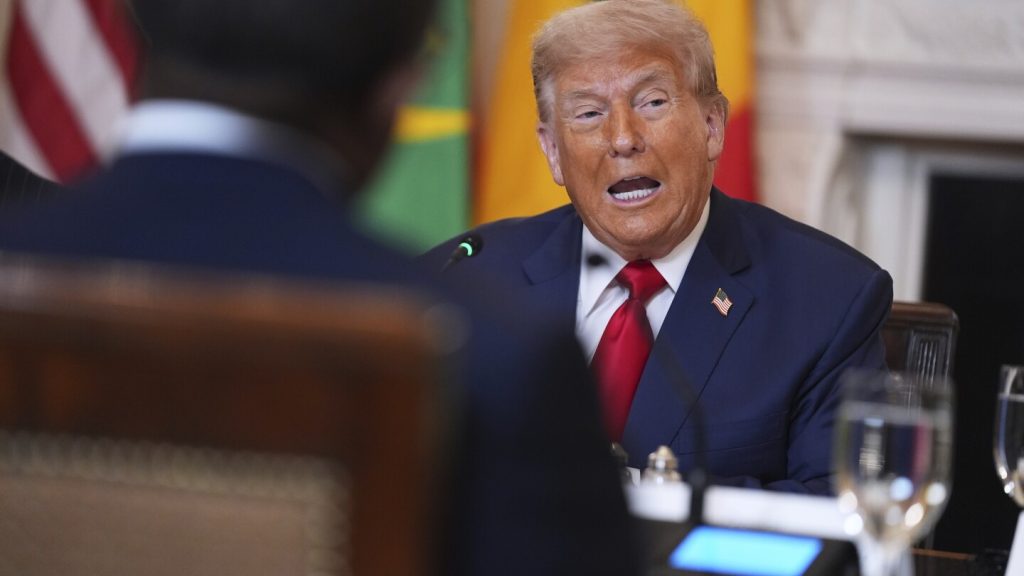Trump Targets Brazil with High Tariffs Amid Personal Grievances
WASHINGTON (AP) — On Wednesday,
President Donald Trump announced a hefty 50% import tax on Brazil, directly linking it to the legal challenges faced by former president Jair Bolsonaro. This move highlights Trump’s tendency to let personal issues influence his economic policies.
Eschewing his usual form letter, Trump directly associated his tariffs with Bolsonaro’s ongoing trial, where he stands accused of efforts to undermine the 2022 election results. Trump has previously expressed camaraderie with Bolsonaro, even hosting him at his Mar-a-Lago estate during their respective terms in 2020.
In a statement shared on Truth Social, Trump remarked, “This Trial should not be taking place. It is a Witch Hunt that should end IMMEDIATELY!” He further criticized Brazil’s Supreme Court for penalizing social media companies like X, claiming these actions represent “SECRET and UNLAWFUL Censorship Orders.” Consequently, he is initiating an investigation under the 1974 Trade Act’s Section 301, targeting practices that are unfair to U.S. businesses.
The situation serves as a reminder that Trump’s political and personal alliances can overshadow straightforward economic principles. While claiming that high tariffs are rooted in trade imbalances, Trump’s recent actions raise questions about how these targeted countries contribute to America’s reindustrialization.
On the same day, Trump dispatched letters to leaders of seven additional nations, including the Philippines, Brunei, Moldova, Algeria, Libya, Iraq, and Sri Lanka. None of these countries pose significant industrial competition to the U.S.
Although many economic analyses predict that the tariffs will likely exacerbate inflation and hinder economic growth, Trump continues to leverage these taxes to assert U.S. influence internationally. His administration asserts that these import taxes will rectify trade imbalances and help revive American manufacturing jobs.
Trump framed trade as a tool for diplomacy during a meeting with African leaders, suggesting that it could facilitate conflict resolution. He remarked, “You guys are going to fight, we’re not going to trade,” indicating a belief in trade as a mechanism for peace. However, his imposition of a 35% tariff on Serbia contradicts this notion.
Countries affected appear to be silent on the proposed tariffs, despite being near the rates previously introduced by Trump. As discussions continue, Trump remains firm on deadlines and negotiations, ensuring no extensions for those receiving his tariff letters.



